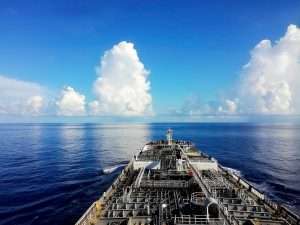Maritime industry onboard with ‘Biofuel Ready’

This notation will help the maritime industry address the main challenges related to the use of biofuels by ships, providing requirements to ensure ship safety and environmental compliance.
The notation aims at helping shipowners to be prepared for the use of biofuels or biofuel blends.
It provides a set of requirements, and outlines a comprehensive methodology for the required documentation and testing, taking into account the fuel’s technical specifications. The notation certifies that the conditions to use biofuel onboard a ship have been successfully met – and any testing to check NOx emissions (if applicable) has been completed satisfactorily. The notation can be applied to both new and existing ships.
Laurent Leblanc, senior vice president technical and operations at Bureau Veritas, said: "As one of the few fuel options available today to reduce greenhouse gas emissions from existing fleets, the use of biofuels by the shipping industry is growing rapidly. I am proud that we can now help shipowners deploy these innovative fuels on their vessels, while ensuring that all safety and regulatory requirements are met.
“This new notation is an important addition to the existing toolbox on the road to the IMO’s 2030 and 2050 GHG and carbon reduction targets. It is also an example of our continued committment to supporting our clients on their decarbonization journey, by providing the independent expertise and validation that helps the industry safely progress innovative solutions.”
This new BV notation was developed in collaboration with different maritime stakeholders, including ship owners and engine manufacturers, building on BV’s expertise across the value chain.
‘Biofuel Ready’ is the latest example of how Bureau Veritas is helping the industry address the challenges of sustainability and the energy transition by providing rules and guidelines to meet the safety, risk and performance requirements for innovation in future fuels and propulsion systems.


















